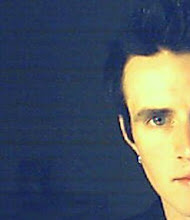Preface to The Antichrist -
This book belongs to the most rare of men. Perhaps not one of them is yet alive. It is possible that they may be among those who understand my "Zarathustra": how could I confound myself with those who are now sprouting ears?--First the day after tomorrow must come for me. Some men are born posthumously.
The conditions under which any one understands me, and necessarily understands me--I know them only too well. Even to endure my seriousness, my passion, he must carry intellectual integrity to the verge of hardness. He must be accustomed to living on mountain tops--and to looking upon the wretched gabble of politics and nationalism as beneath him. He must have become indifferent; he must never ask of the truth whether it brings profit to him or a fatality to him... He must have an inclination, born of strength, for questions that no one has the courage for; the courage for the forbidden; predestination for the labyrinth. The experience of seven solitudes. New ears for new music. New eyes for what is most distant. A new conscience for truths that have hitherto remained unheard. And the will to economize in the grand manner--to hold together his strength, his enthusiasm...Reverence for self; love of self; absolute freedom of self.....
Very well, then! of that sort only are my readers, my true readers, my readers foreordained: of what account are the rest?--The rest are merely humanity.--One must make one's self superior to humanity, in power, in loftiness of soul,--in contempt.
FRIEDRICH W. NIETZSCHE.
Excerpt on faith in Chapter Nine -
The full book can be found here.
Upon this theological instinct I make war: I find the tracks of it everywhere. Whoever has theological blood in his veins is shifty and dishonourable in all things. The pathetic thing that grows out of this condition is called faith: in other words, closing one's eyes upon one's self once for all, to avoid suffering the sight of incurable falsehood. People erect a concept of morality, of virtue, of holiness upon this false view of all things; they ground good conscience upon faulty vision; they argue that no other sort of vision has value any more, once they have made theirs sacrosanct with the names of "God," "salvation" and "eternity."
I unearth this theological instinct in all directions: it is the most widespread and the most subterranean form of falsehood to be found on earth. Whatever a theologian regards as true must be false: there you have almost a criterion of truth. His profound instinct of self-preservation stands against truth ever coming into honour in any way, or even getting stated. Wherever the influence of theologians is felt there is a transvaluation of values, and the concepts "true" and "false" are forced to change places: what ever is most damaging to life is there called "true," and whatever exalts it, intensifies it, approves it, justifies it and makes it triumphant is there called "false."...
When theologians, working through the "consciences" of princes (or of peoples--), stretch out their hands for power, there is never any doubt as to the fundamental issue: the will to make an end, the nihilistic will exerts that power...
Subscribe to:
Post Comments (Atom)


No comments:
Post a Comment